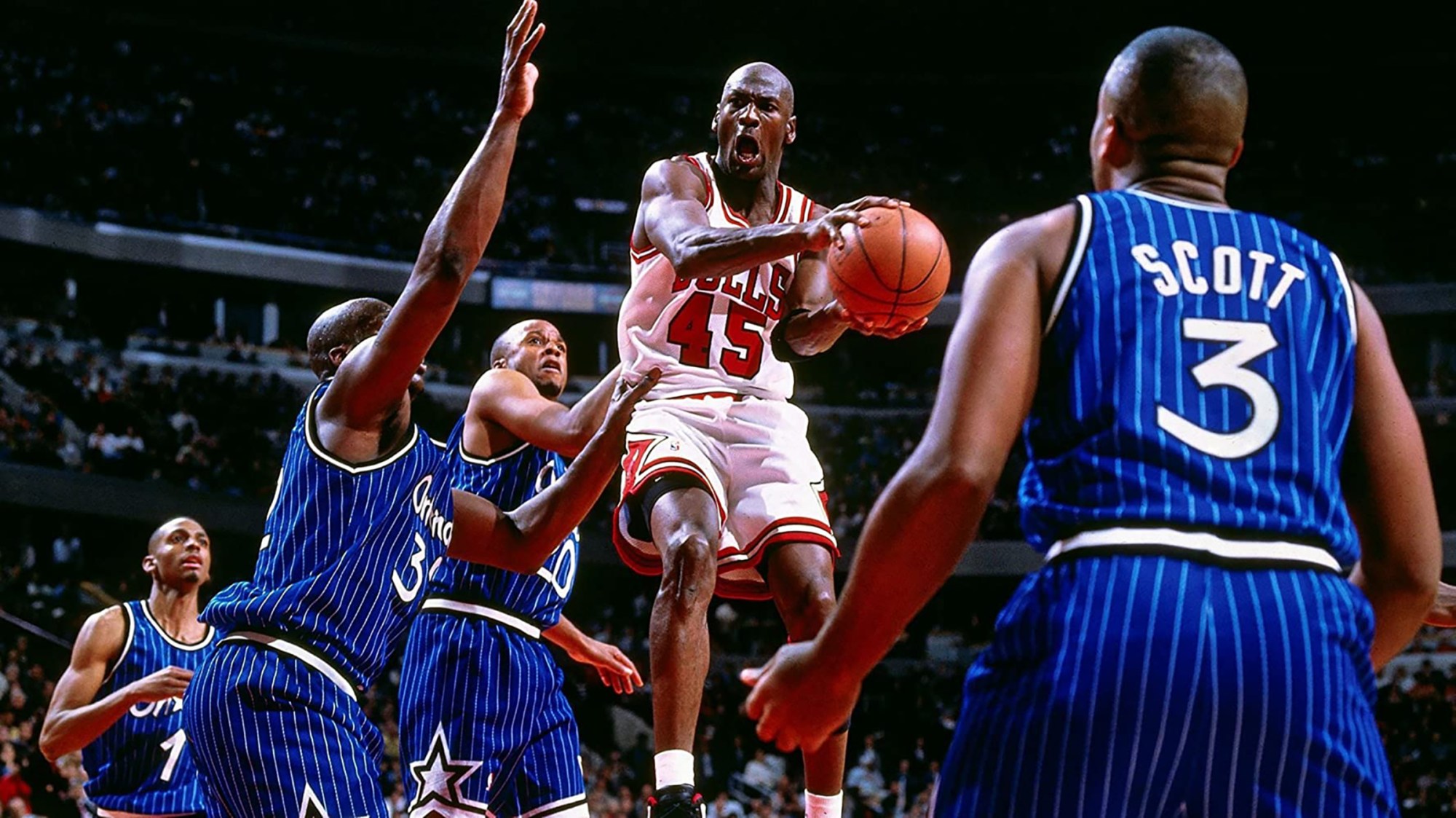
- Interviews
How ‘The Last Dance’ Was Made
In the fall of 1997, Michael Jordan and the Chicago Bulls allowed a film crew to follow them as they went for their sixth NBA title in eight seasons. The result was The Last Dance, the critically acclaimed 10-episode docuseries from ESPN Sports, Netflix and Mandalay Sports Media, culled from almost 500 hours of raw footage, which includes more than 20 hours of new interviews with Jordan as well as hundreds more with his teammates from that era. The Last Dance became a global phenomenon during the worldwide quarantine, and will soon return on Netflix for an encore. This year, the BANFF World Media Festival – which went virtual for 2020 – hosted a conversation with Mike Tollin, the docuseries’ award-winning executive producer, who is also co-chair of Mandalay Sports Media, and with Andy Thompson, NBA entertainment producer, uncle of NBA player Klay Thompson, and brother of L.A. Lakers NBA champion, Mychal Thompson, who was first attached to the Chicago Bulls during a training camp in 1992. Following are excerpts from the conversation.
On the genesis of the docuseries?
mso-fareast-font-family:Calibri’>: I was fussing around, trying to make it work for years, but for 18 years Michael Jordan had said no to it. When I was finally ushered in to see the wizard behind the curtain to explain why I thought I was the right person to do this, I decided to channel Michael’s own energy and say, “Why not me?” Michael read my proposal, which pointed out that to this day all these kids come into my office wearing his sneakers, who have never seen him play in their life, and that I felt it was just time to do this. In retrospect, I feel like he was also finally ready to be reflective and thoughtful. Enough time had passed since 1997 that it was a cathartic exercise for him, too.
Andy Thompson: Through my brother, I’d gotten to know Michael over the course of his career, and then in 1992, I was the producer attached to the dream team to follow them from the training camp all the way through Monte Carlo to Barcelona – a time period of over seven weeks, during which time I got to know him much better. It made me think, as they went on to keep winning, that this time should be documented; in 1997, towards the end of their run, I went to the NBA and pitched that one of the greatest players in NBA history was likely going to retire or go away soon, adding that, just from a historical standpoint, nobody had ever really followed this team and documented them, so they all agreed.
The road to air.
Calibri’>: The deal was that the footage wouldn’t be aired until Michael Jordan gave permission. When we shot the championship win by Michael in such a dramatic way at the end of the season, everyone felt like we had the Holy Grail of sports documentaries – we knew we had something incredibly special, although we never thought it would be as successful as it became. Did we think it would take 20 years to convince Michael to let us air the footage? Definitely not. We started off back then thinking we’d make a two-hour traditional documentary, and we were in talks with Michael and his management to do so; but in the middle of that lockout in 1999, after Michael had retired, he walked away from the NBA and didn’t want to have anything to do with the film, so it sat in a vault. Then he came back, and we jumped onto a plane to document that next season, but the team didn’t do well in Washington – they didn’t make the playoffs, and it ended on a really sour note. Once again, he was not in the mood to retell the story of the ’98 season than either, and we’d joke about it over the years when our paths crossed, but it didn’t come together until now.
Calibri’>He was definitely concerned because not everybody likes to be pushed. Having said that, both Michael and I come from a tough era. When I was a kid, I remember my high school coach picking me up by my collar and throwing me against the locker to get me to play harder, and, in those days, I responded to that. If a coach did that now, he would be fired! But that’s the era Michael came out of, too, and he brought that same type of tenacious mindset and will to win into the locker room and onto the court with his teammates. He was tough, but he didn’t expect anyone to do anything he wasn’t willing to do himself. In the same way with the interviews, we made it clear we were going to ask tough questions, and he never steered away from answering them. He had no issues with how he was going to be portrayed, so a lot of stuff was able to come up that he’s never talked about before, including questions about his gambling, the way the media and his teammates perceived him, and his associations with some shady characters throughout his career. It’s all there.
Calibri’>: Michael clearly wanted us to tell his story, so he made himself totally available to us. As a producer, he watched every cut of the series over the years of editing, and he helped us reach out to his teammates to get their participation too. As an interview subject, he did three interviews and talked for about eight or nine hours in each interview. He never censored anything: in fact, sometimes he’d suggest we look at games in which he hadn’t played well or had even lost because it was a reference to something that had been spoken about. He was more interested in telling the whole story, not just the part where he was winning.

